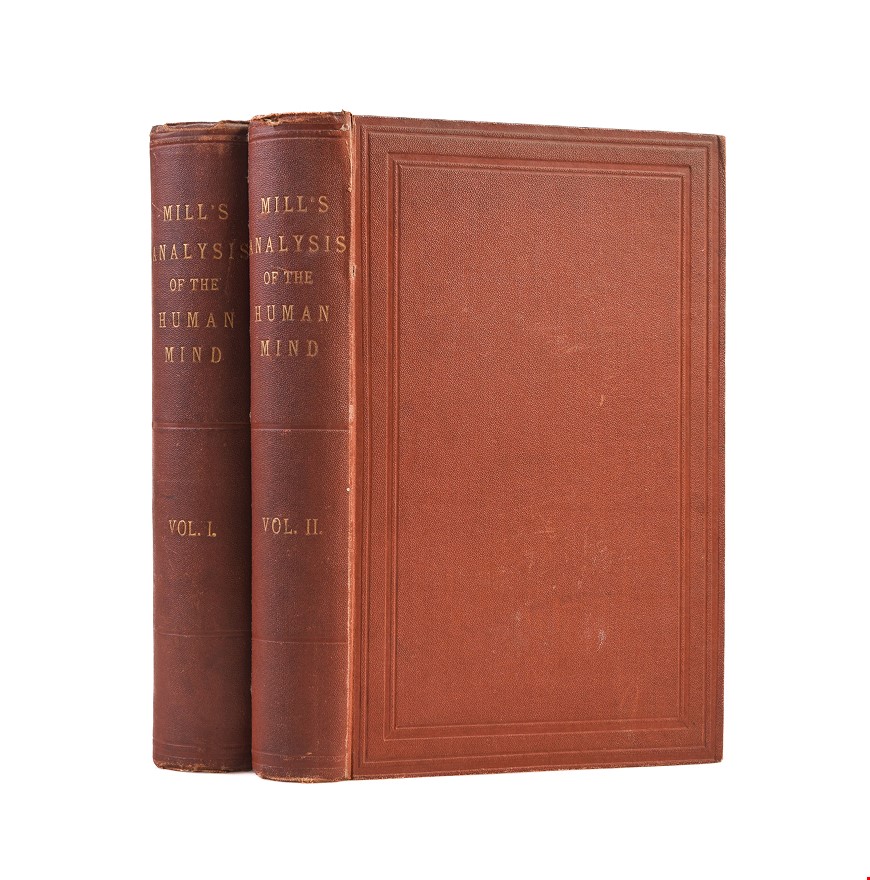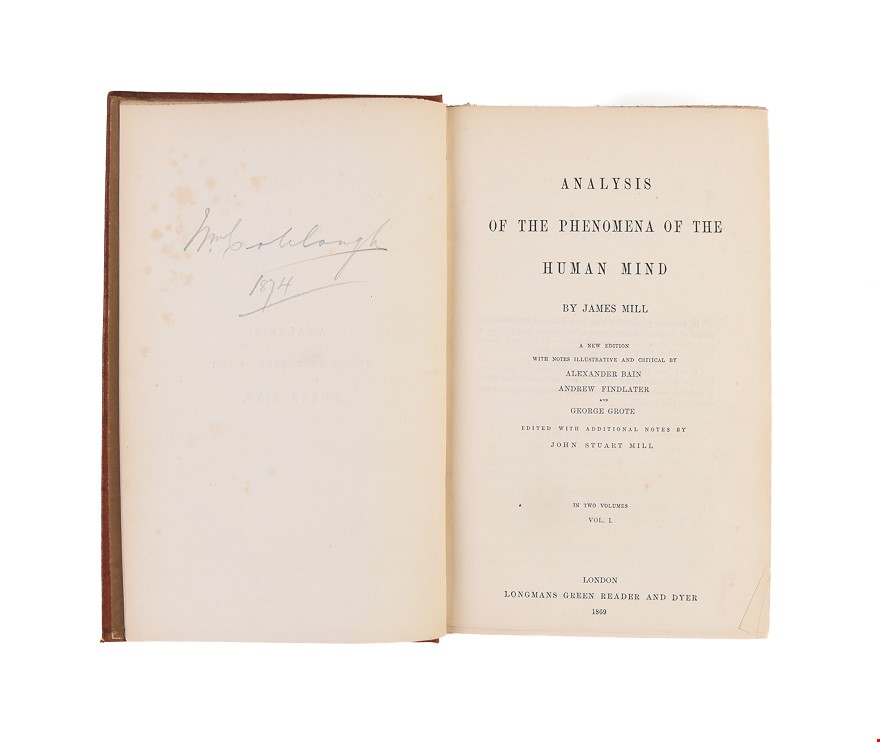Analysis of the Phenomena of the Human Mind. A New Edition with Notes Illustrative and Critical by Alexander Bain, Andrew Findlater and George Grote. Edited with Additional Notes by John Stuart Mill.
MILL James.; MILL John Stuart. Edited with additional notes (1869.)
£350.00 [First Edition]
Please contact us in advance if you would like to view this book at our Curzon Street shop.
First edition thus (second overall). Two volumes. 8vo. xxiv, 453, [1]; 403, [1], 24 [publisher's advertisements dated 'March, 1873'] pp. Original red cloth, spine lettered in gilt and ruled in blind, covers panelled in blind, brown coated endpapers, top edges untrimmed (spotting to endpapers, some light wear to extremities, spines slightly darkened and rubbed at tips, notwithstanding a very good set). London, Longmans, Green, Reader and Dyer.
The principal philosophical work by James Mill, father of John Stuart Mill, originally published in 1829. The publication of the present edition was the initiative of John Stuart Mill, who greatly expanded the text in the hope to reintroduce what he saw as his father's neglected work. John Stuart Mill was heavily influenced by his father's works and it can been said that 'many of J.S. Mill's logical and ethical doctrines are evidently suggested by the attempt to solve problems to which his father's answers appeared unsatisfactory' (DNB).
In the Analysis of the Phenomena of the Human Mind, James Mill sought to demonstrate 'how all mental activity can be explained by the ways in which the sensations obtained through sense receptors, such as ears, eyes and nose, associate with each other in an organised way, and form more complex emotions, ideas and capacities. It is largely an exercise in logical construction rather than a psychological account. The result is what Mill intended to produce: a small set of general principles derived from an examination of the structure of the human mind, a set that we can then use to formulate practical measures for the improvement of human welfare' (Mander & Sell, The Continuum encyclopaedia of British philosophy, pp. 790–91).
From the library of Ernest Thorp, Professor of Modern and Political Thought at the London School of Economics, with his neat ownership inscriptions dated '1960' to the half titles of both volumes.
Stock Code: 246919





